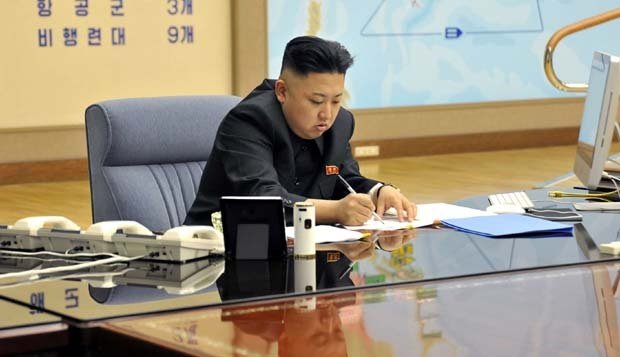 Pyongyang - North Korea's top leader, Kim Jong Un, apparently has been exporting coal to Russia, which is then distributed to South Korea and Japan.
Pyongyang - North Korea's top leader, Kim Jong Un, apparently has been exporting coal to Russia, which is then distributed to South Korea and Japan.
Activities that violate UN Security Council witnesses were reported to have taken place during August 2017 based on leaks from 3 Western European intelligence sources. As reported by Reuters on Friday, January 26, 2018, the UN Security Council banned North Korea's coal export on 5 August with sanctions intended to cut off the important source of foreign currency Pyongyang, which is indispensable to fund nuclear weapons and missile programs long distances. But the communist state has at least three times sent coal to the ports of Nakhodka and Kholmsk in Russia. This strategic commodity is lowered on the dock and loaded back onto the ship, which takes it to South Korea or Japan.
Western delivery sources said separately that some of the cargoes reached Japan and South Korea in October 2017. A US security source also confirmed the coal trade through Russia and said it was continuing.
"Russia's Nakhodka harbor becomes a transit point for North Korean coal," said one European security source, who asked to remain anonymous.
Two of the three sources stressed the transaction clearly violates UN sanctions, which Russia has also agreed to.
Western European intelligence sources also revealed there were two separate lines for coal shipments to Russia.
First through Nakhodka, about 85 km east of the city of Vladivostok, Russia. One of the boats using this route is Jian Fu, who sailed from Nampo in North Korea on August 3.
The vessel has shut down its tracer transmitter from July 24 to August 2, 2017, while on the high seas, according to ship tracking data available to the public. Under the maritime convention, this is an acceptable practice on the consideration of the ship's captain.
Another ship arrived at the same spot on August 16, 2017, loading 20,500 tons of coal and heading to the port of Ulsan in South Korea on August 24.
The second route brings coal through Kholmsk on the island of Sakhalin, Pacific Pacific, north of Japan.
At least two North Korean ships lowered their coal loads at a dock at Kholmsk port in August and September 2017 after arriving from Wonsan and Taean ports in North Korea. The Rung Ra 2 ship docked at Kholmsk three times between August 1 and Sept 12, 2017, unloading a total of 15,542 tonnes of coal, while the Ul Ji Bong 6 vessel lowered 1,068 tonnes of coal on August 3 and between 1 and 8 September 2017.
As reported by Reuters on January 26, 2018, ship travel data based on information from the Russian Information System for the Control of State Ports.
To fool UN sanctions, coal is loaded by vessels operated by China.
Reuters journalists have looked at port control documents, which declare coal destination as North Korea. But ships carrying North Korean coal sailed to Pohang and Incheon seaports in South Korea, according to ship tracking data.
the US Treasury Department on Wednesday put Ul Ji Bong 6 boat owners under sanctions for handing North Korea coal to Kholmsk after sanctions were imposed. It is not clear which companies are benefiting from the coal shipments.
North Korea's coal exports initially shut down under the 2016 Security Council resolution, which requires countries to report monthly coal imports from North Korea to the council's sanctions committee within 30 days of the end of the month.
North Korea has refused to release the development of a nuclear missile capable of hitting the United States. North Korean leader Kim Jong Un says the sanctions violate his sovereignty and accuse the United States of wanting to isolate, detain and invade North Korea.